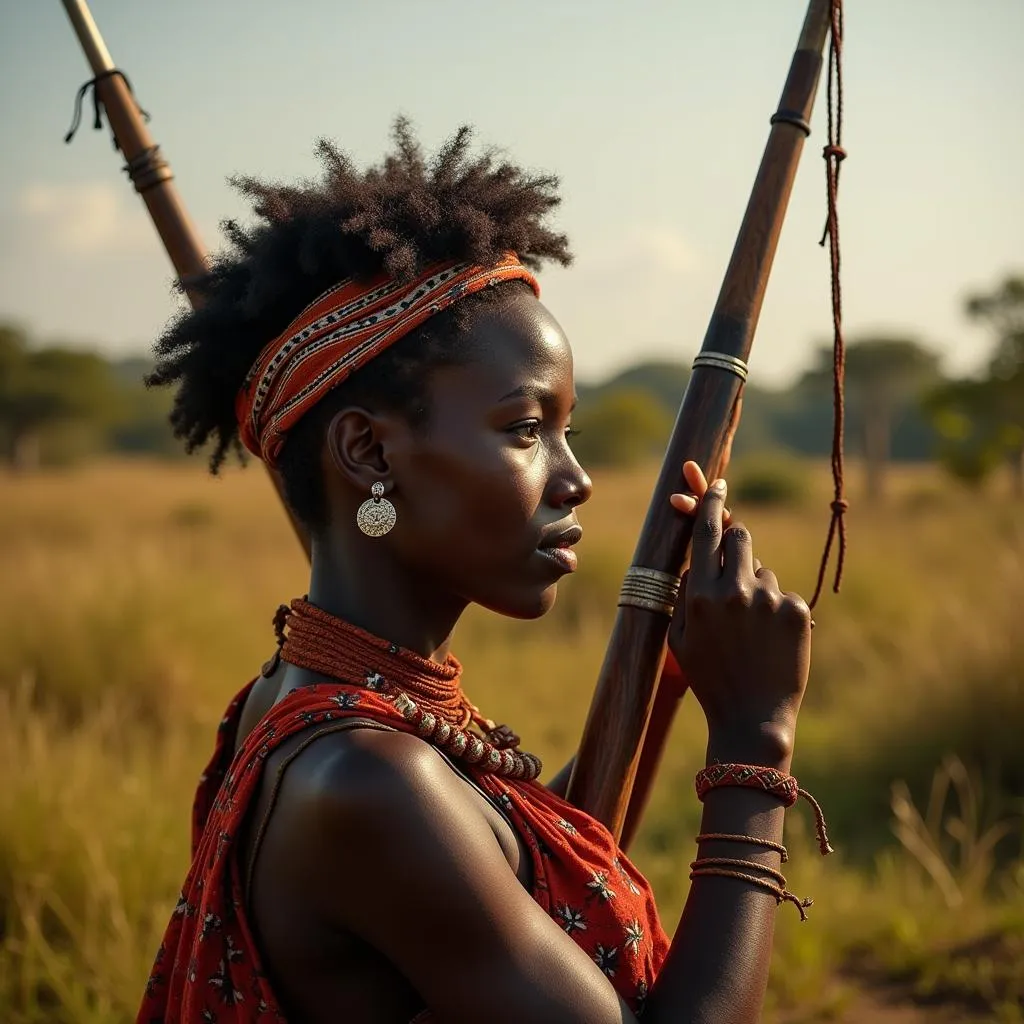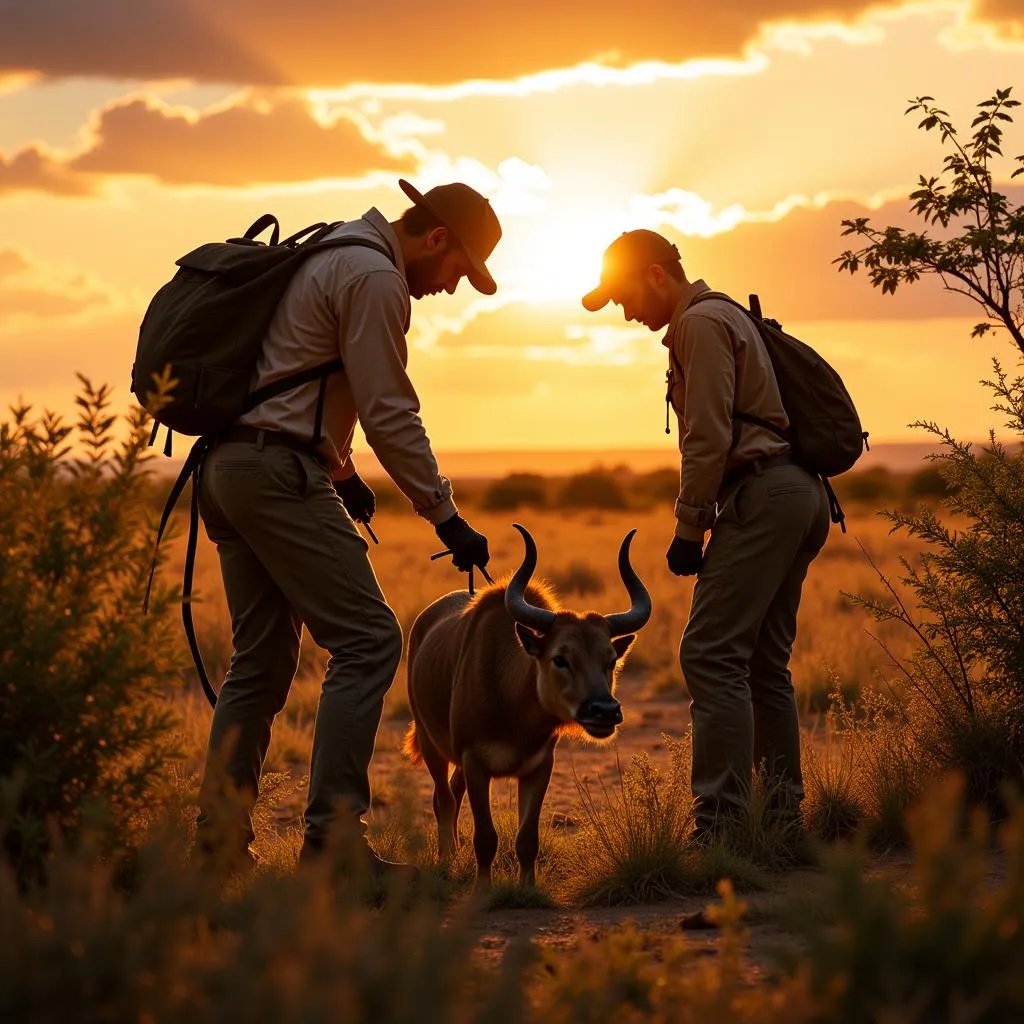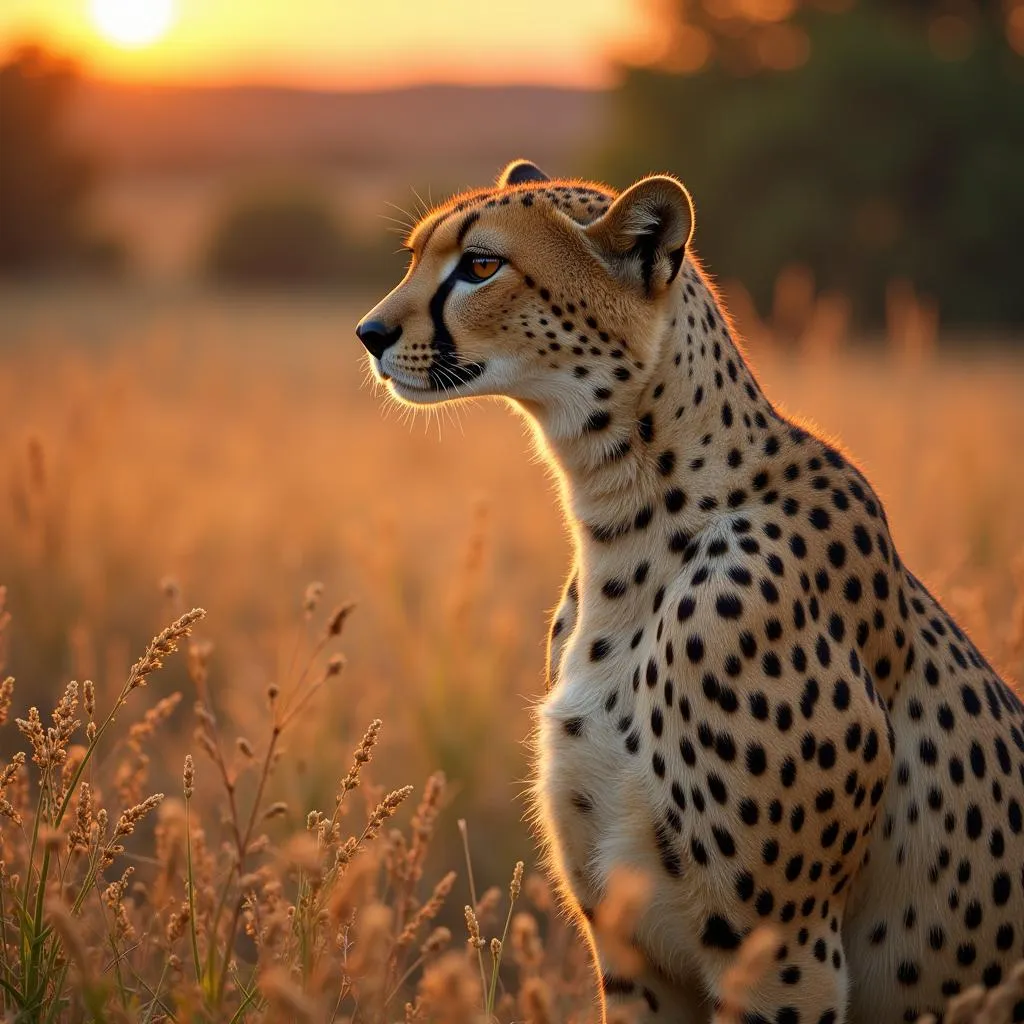African Hunting Videos: A Lens into Wildlife Conservation and Cultural Heritage
African Hunting Videos often stir strong emotions and spark heated debates. While some see them as a celebration of heritage and a tool for conservation, others condemn them as barbaric and exploitative. To truly understand the complexity of this issue, we must delve deeper into the world of African hunting videos, exploring their historical context, examining the arguments for and against them, and considering their impact on wildlife and local communities.
 Traditional African Hunting Practices
Traditional African Hunting Practices
The History of Hunting in Africa: A Deeply Rooted Tradition
Hunting in Africa dates back millennia, playing a vital role in the survival and cultural development of its people. For countless generations, indigenous communities relied on hunting for sustenance, clothing, and tools. Hunting was not merely a means to an end; it was deeply intertwined with their spiritual beliefs, social structures, and rituals.
The arrival of European colonialism in Africa brought significant changes to hunting practices. Trophy hunting, driven by the desire for exotic trophies and fueled by the misguided notion of the “great white hunter,” emerged as a popular pastime for wealthy Westerners. This period saw the exploitation of wildlife and the marginalization of indigenous hunting practices.
The Rise of African Hunting Videos: Documenting a Controversial Practice
In the digital age, African hunting videos have become increasingly prevalent, offering a glimpse into this controversial practice. These videos range from amateur footage captured by hunters themselves to professionally produced documentaries exploring the ethical and ecological implications of hunting.
 Wildlife Conservation Efforts in Africa
Wildlife Conservation Efforts in Africa
The Case for African Hunting: Conservation and Economic Benefits
Proponents of African hunting, particularly regulated trophy hunting, argue that it can play a crucial role in wildlife conservation and economic development. They contend that:
- Revenue generated from hunting permits and fees can fund anti-poaching efforts, habitat restoration, and community development projects.
- Well-managed hunting quotas, based on scientific data, can help control wildlife populations and prevent overgrazing, ensuring the long-term sustainability of ecosystems.
- Hunting can provide a source of income and employment in rural communities, empowering local people and fostering a sense of ownership over wildlife resources.
The Case Against African Hunting: Ethical Concerns and Animal Welfare
Opponents of African hunting vehemently argue that it is cruel, unethical, and ultimately detrimental to wildlife conservation. They raise several critical concerns:
- The inherent cruelty of killing animals for sport, often targeting endangered or threatened species, raises significant ethical questions about the value of life and human-animal relationships.
- Corruption and lack of transparency in the hunting industry can undermine conservation efforts, with funds often failing to reach local communities or being diverted from their intended purpose.
- The removal of dominant males from breeding populations through trophy hunting can disrupt social structures and have unforeseen consequences on the genetic diversity of wildlife.
 An African Cheetah in Its Natural Habitat
An African Cheetah in Its Natural Habitat
The Impact of African Hunting Videos: Raising Awareness or Glorifying Violence?
African hunting videos can be powerful tools for raising awareness about wildlife conservation, showcasing the beauty and diversity of African ecosystems, and educating viewers about the complexities of hunting. However, they can also be perceived as glorifying violence against animals, perpetuating harmful stereotypes, and fueling the demand for trophy hunting.
Moving Forward: Sustainable Solutions and Responsible Tourism
Addressing the complex issues surrounding African hunting requires a nuanced approach that balances the needs of wildlife conservation, local communities, and ethical considerations. Sustainable solutions may include:
- Promoting responsible tourism practices that prioritize wildlife viewing and cultural immersion over trophy hunting.
- Empowering local communities to manage and benefit from their wildlife resources through community-based conservation initiatives.
- Strengthening law enforcement and anti-poaching efforts to combat illegal hunting and wildlife trafficking.
- Fostering greater transparency and accountability within the hunting industry to ensure that funds are used ethically and effectively for conservation purposes.
Conclusion: Finding a Balance for the Future of African Wildlife
The debate surrounding African hunting videos reflects a broader conversation about our relationship with the natural world. While there are valid arguments on both sides, it is essential to prioritize the long-term well-being of African wildlife and ensure that any form of hunting is conducted ethically, sustainably, and with the full participation of local communities. By fostering understanding, promoting dialogue, and embracing responsible practices, we can work towards a future where both wildlife and people thrive in harmony.
Frequently Asked Questions
Is all hunting illegal in Africa?
No, not all hunting is illegal in Africa. However, regulations vary widely between countries and regions, with strict laws in place to protect endangered species and regulate trophy hunting.
What is the role of technology in combating illegal hunting?
Technology plays a crucial role in combating illegal hunting, with drones, satellite imagery, and other advanced tools used for surveillance, monitoring wildlife populations, and tracking poachers.
How can I contribute to African wildlife conservation?
You can contribute to African wildlife conservation by supporting reputable conservation organizations, participating in responsible tourism, raising awareness about wildlife trafficking, and making informed choices as a consumer.
Learn More
For further insights into African wildlife, explore our articles on:
Need assistance with planning your African safari or learning more about wildlife conservation efforts? Contact us at +255768904061, kaka.mag@gmail.com, or visit our office in Mbarali DC Mawindi, Kangaga, Tanzania. Our dedicated team is available 24/7 to assist you.